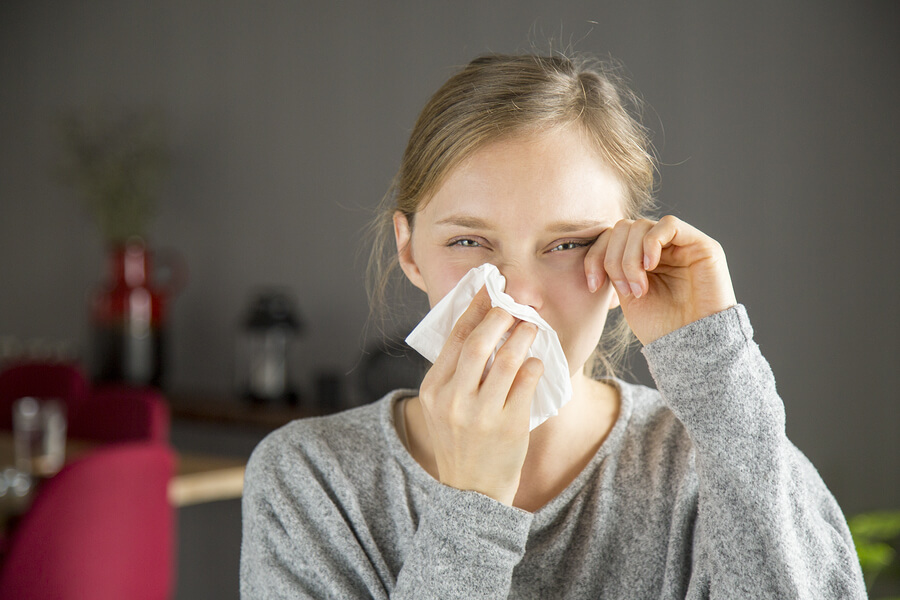For many of us, the bright colors and nice spring weather bring something far less pleasant﹘ seasonal allergies. Congestion, sneezing, and a runny nose are all common signs of allergies, but what about the effects on your eyes?
Allergy sufferers might experience burning, itching, or redness and watery or swollen eyes. The good news is that seasonal allergies, however unpleasant, don’t present a significant threat to the long-term health of your eyes.
Allergic Conjunctivitis is the medical term for eye allergies. Like all types of allergies, allergic conjunctivitis is caused by an overblown immune system response to an otherwise harmless substance. During the spring, high pollen counts and an abundance of mold spores can trigger immune reactions causing uncomfortable eye symptoms.
Addressing Eye Allergies. There are quite a few options for treating eye allergies, and I recommend trying one treatment method at a time to find what actually works for your eyes.
- Lessen Exposure. As we discussed, allergies are triggered by specific “invaders,” so avoiding those is a good way to lessen symptoms. Pollen counts are highest in the mornings (5 a.m. to 10 a.m.), especially on warm, dry spring days, so stay indoors during these times as much as possible. If you have to go outside, wear sunglasses as an additional barrier between your eyes and allergens. When driving, do so with the windows up and the air conditioner on.
- Antihistamine Medications. Because eye allergies are caused by the same reactions as other allergy symptoms, over-the-counter antihistamine medications can help to clear them up. Common antihistamines include cetirizine (Zyrtec), diphenhydramine (Benadryl), fexofenadine (Allegra), and loratadine (Alavert, Claritin). These medications can offer hours of relief, but keep in mind that some may cause unwanted drowsiness.
- Allergy Eye Drops. To get direct relief quickly, you could try using antihistamine eye drops. Unlike allergy pills, eye drops may need to be used multiple times per day to provide relief. Unfortunately, you shouldn’t use over-the-counter allergy eye drops for more than a few days at a time. There are prescription eye drops available, so if you prefer this method of treatment, talk to your eye doctor about how to proceed.
- Immunotherapy. If your allergies are severe and persistent enough, it might be worth talking with your doctor about immunotherapy options. These include shots and under-the-tongue tablets that prevent your immune system from going into “allergy mode.”
Remember! In addition to the treatments listed above, remember to take the following steps to lessen the severity of allergic conjunctivitis:
- Don’t rub your eyes. I know they’re itchy, but rubbing them will only irritate them further.
- Rinse with saline. Instead of rubbing your eyes, try a preservative-free saline rinse.
- Care for your contacts. Always, but especially during allergy season, make sure to take out and properly clean contact lenses.
If you’ve tried all of your options without finding relief, talk to your eye doctor. More serious eye conditions, such as infections, can present as allergy symptoms, and if left untreated, could affect your eyesight.







